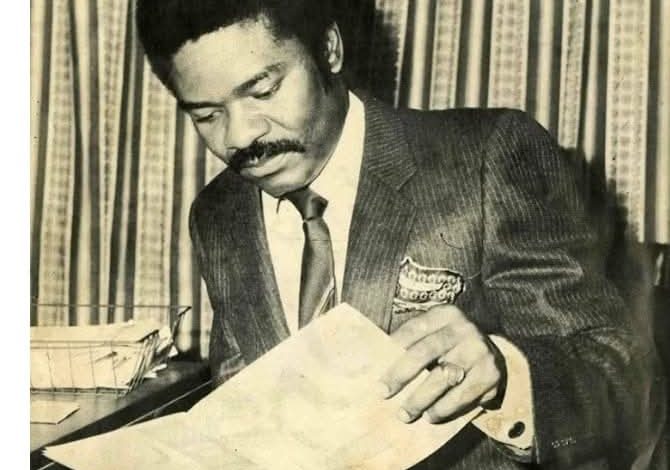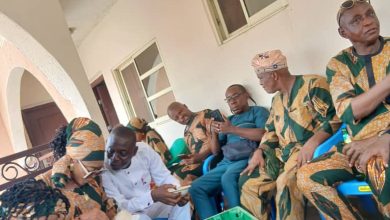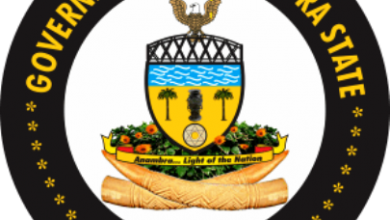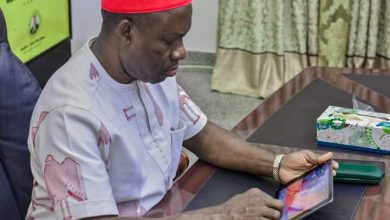
By Tony Okafor
Thirty-nine years after the brutal murder of one of Nigeria’s brightest journalistic minds, Dele Giwa, the question remains unanswered: Who killed Dele Giwa?
It is a national sin — and an unforgivable one — that the Nigerian state has allowed this heinous act to remain buried beneath the debris of official silence, denials, and indifference.
For nearly four decades, the ghost of Dele Giwa has haunted the conscience of a nation that vowed to protect freedom of expression and the sanctity of truth in its grundnorm. Lp
For those who may have forgotten — or were not yet born — on October 19, 1986, Giwa, then the Editor-in-Chief of Newswatch, was blown apart in his Lagos home by a parcel bomb — a grotesque first in Nigeria’s history.
The bomb, delivered under official cover and bearing the seal of the Presidency, cannot be dismissed as a mystery bomb from Lucifer.
It was a time bomb detonated to silence dissent, to instill fear, and to remind Nigerians of the peril of speaking truth to power.
The story is well documented. Giwa had been accused — falsely, as history now confirms — of plotting a “socialist revolution.” Alarmed, he briefed his lawyer, the late Gani Fawehinmi, after receiving threats and curious assurances from state officials. Then, two days later, death came neatly wrapped in an envelope.
Since that dark Sunday morning, Nigeria has changed governments — from military juntas to democratic administrations — yet the case remains unsolved. No suspect has been prosecuted. No justice has been done. Instead, successive leaders have preferred to turn the page, hoping that time would blur the memory. But time does not erase injustice; it only deepens the wound.
Former Military President Ibrahim Babangida, in his newly launched autobiography A Journey in Service, has again denied involvement in the killing that occurred under his rule, lamenting that the “hysteria of the media” hindered investigations. He insists he still hopes the truth will someday emerge — perhaps “after us.”
But that is precisely the tragedy. Why must Nigerians wait “after us” to know the truth about a crime committed in our name, against one of our finest patriots? Why must justice wait for the graveyard of time before it finds its voice?
The presence of President Bola Ahmed Tinubu — himself a lifelong activist and defender of press freedom in his heyday — at the launch of Babangida’s book gives this moment renewed moral weight.
Tinubu, who once fought dictatorship with almost the last pint of his blood, must now prove that those struggles were not in vain.
We therefore call on President Tinubu to rise to the demands of history by reopening the case of Dele Giwa’s murder — not for politics, not for vengeance, but for posterity. A people that cannot unravel the truth behind the deaths of their own heroes cannot claim to be free.
Let this administration, under Tinubu’s watch, instruct the police and relevant security agencies to revisit all existing files, declassify hidden records, and reinterview key witnesses — including those who served in intelligence and security circles in 1986. Technology and forensics have advanced since then. The truth can still be traced, even if buried under decades of dust.
Dele Giwa’s death is not just an event of the past. It is a mirror of our collective moral decay — a reflection of how the state treats those who dare to challenge it. To leave his killers unpunished is to endorse state impunity.
Thirty-nine years on, the question burns brighter than ever: Who killed Dele Giwa?
Until that question is answered with truth and justice, Nigeria’s democracy remains haunted by the echo of that explosion on Talabi Street, Ikeja — the day a parcel of death was delivered to silence a voice of truth.
President Tinubu, history beckons. And Dele Giwa still waits.
Ubi jus ibi remedium — where there is a right, there is a remedy.



